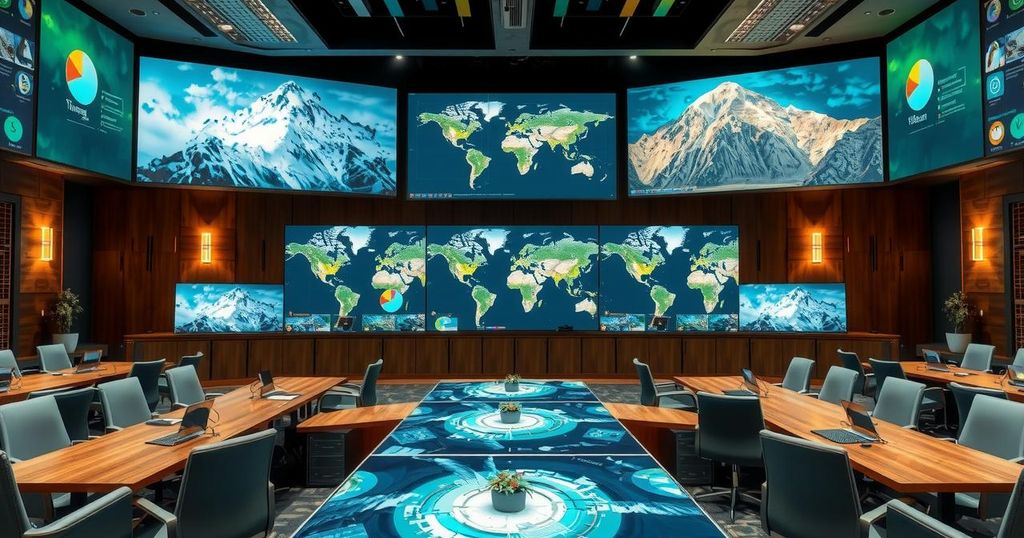Ecuador and Peru are facing severe weather conditions as 13-foot waves strike their coasts, resulting in two reported deaths and multiple port closures. Authorities warn of sustained extreme wave activity attributed to climate change, affecting fishing communities significantly. Emergency responses are ongoing as local governments address the impact on coastal settlements and maritime operations.
Powerful waves reaching heights of up to 13 feet have struck the coastlines of Ecuador and Peru, resulting in the closure of numerous ports and the tragic loss of at least two lives. According to Ecuador’s secretary for risk management, Jorge Carillo, an “extreme event” is underway, indicating potential for similar incidents in the future. He confirmed that both fatalities occurred in Ecuador’s Manta region. In Peru, most ports have been shuttered due to the relentless waves, as reported by Enrique Varea of the naval Oceanographic Department. He anticipates a slight decrease in wave intensity starting Monday, with conditions expected to normalize by early January.
Officials suggest that these anomalous wave patterns may be attributed to climate change, as stated by Larry Linch, head of the Civil Defense unit in Callao, Peru. Local media showcased images of submerged jetties and public areas that forced residents to evacuate to safer elevations. The Peruvian navy explained that the massive waves are influenced by winds impacting the ocean’s surface off the U.S. coast, prompting government authorities to close many beaches to minimize risk to public safety.
The fishing community suffered significant losses as many boats were rendered inoperative due to severe conditions. One fisherman, reflecting on the unprecedented nature of the waves, noted, “I have never seen such unusual and strong waves”. A total of 31 fishermen stranded amidst the swell were rescued over the weekend, while reports indicate that around 180 others remain at sea. Concurrently, similar wave activity has been reported along the central Chilean coast, prompting further warnings from local authorities. Mayor Roberto Carrillo Zavala emphasized the economic implications for the fishing sector, stating, “There is a major problem.”
The extreme wave phenomenon is projected to persist until January 1, as announced by Peru’s National Emergency Operations Center, presenting ongoing challenges for coastal communities in both Ecuador and Peru.
The coastal regions of Ecuador and Peru frequently experience severe weather conditions, but recent occurrences of exceptionally high waves have prompted significant concern among local authorities. The phenomenon, which began on Christmas Day, is linked to climatic changes and strong ocean winds. Such extreme weather patterns have led to considerable risks for fishing operations and coastal settlements, emphasizing the necessity for emergency responses and adaptations to mitigate impacts on vulnerable communities.
The recent surge of 13-foot waves along the Ecuadorian and Peruvian coasts has resulted in tragic fatalities, extensive property damage, and severe disruptions to maritime operations. With authorities anticipating the continuation of such extreme weather patterns, particularly attributed to climate change, proactive measures are essential to protect lives and the local economy. The collaboration between government entities and the affected communities will be crucial in addressing the aftermath and preparing for future occurrences.
Original Source: www.hindustantimes.com




